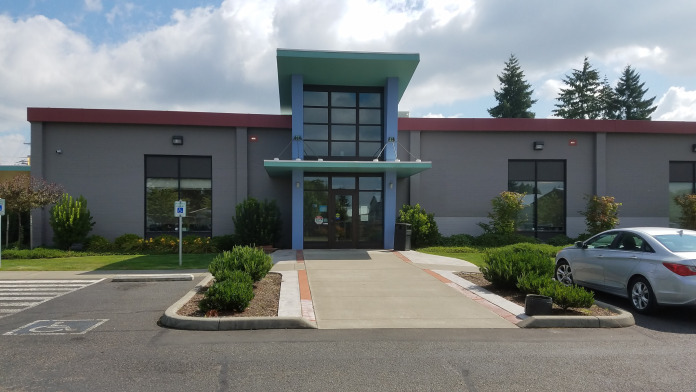Sadly, I would never send a loved one to this treatment center. My son was there and needed care and was offered none. The time he was there the center had an covid outbreak and wasn't able to offere classes and meetings. That was held against him for his time there. And ...
About American Behavioral Health Systems – ABHS
Their intensive residential treatment program employs a variety of treatment modalities such as group counseling, psychoeducation and cognitive behavioral therapy. They also offer emotional interviewing, individual counseling and therapeutic communities as well as case management. Clients can work with a chemical dependency professional anywhere from five to 20 hours per week depending on the level of care that is determined necessary.
You will be surrounded during your stay by skilled clinicians who are sympathetic to your situation and genuinely interested in your success. They will help you at every stage by offering direction, inspiration and chances for self determination. Patients who are screened and deemed suitable may receive medication assisted treatment. Weekly screening for common medical issues by a family nurse practitioner or psychiatric nurse practitioner can help increase treatment success.
Among their secure acute withdrawal management services are opioid withdrawal and medically assisted withdrawal. They also offer withdrawal services for benzodiazepines, barbiturates, alcohol and amphetamines. Their acute program lasts 7 to 10 days on average, and they may prescribe medication to help you feel less uncomfortable.
Their qualified medical staff will provide you with the safest possible detoxification guidance. To remove the chemicals from your body, it may take five to seven days on average. In more severe cases it can take up to 14 days. Clients meet with a substance abuse professional for evaluation and referral services after they achieve physical stability. Direct referrals to a residential treatment program may fall under this category.
Facility Overview
Latest Reviews
Rehab Score
Gallery
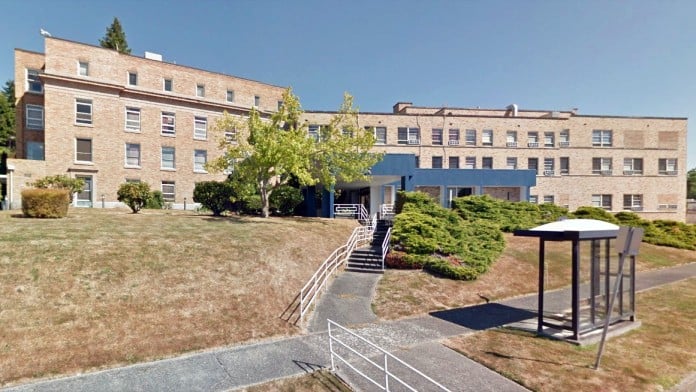
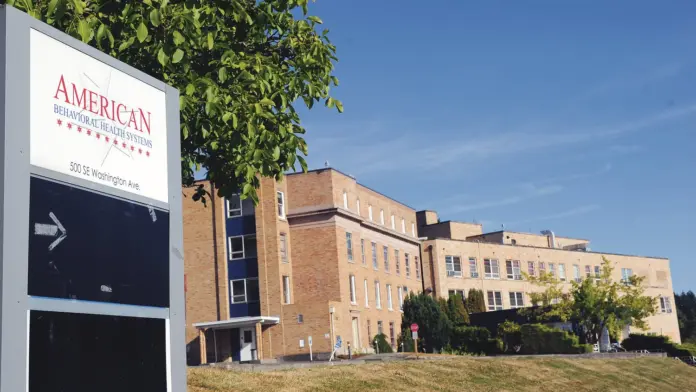
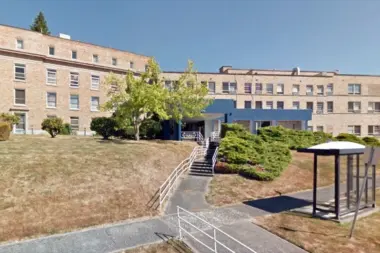
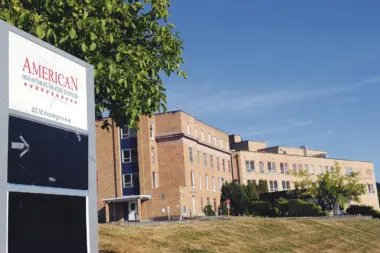
Other Forms of Payment
Private insurance refers to any kind of healthcare coverage that isn't from the state or federal government. This includes individual and family plans offered by an employer or purchased from the Insurance Marketplace. Every plan will have different requirements and out of pocket costs so be sure to get the full details before you start treatment.
Self-pay involves paying for treatment out of your own pocket. You can use savings or credit, get a personal loan, or receive help from family and friends to fund your treatment. If you don't have insurance or your insurance plan doesn't cover a specific program, self-pay can help ensure you still get the care you need.
Financial aid can take many forms. Centers may have grants or scholarships available to clients who meet eligibility requirements. Programs that receive SAMHSA grants may have financial aid available for those who need treatment as well. Grants and scholarships can help you pai for treatment without having to repay.
Medicaid is a state based program that helps lower-income individuals and families pay for healthcare. Medicaid covers addiction treatment so those enrolled can use their coverage to pay for rehab. When a program accepts Medicaid the client often pays very little or nothing out of their own pocket.
Addiction Treatments
Levels of Care
American Behavioral Health offers inpatient residential treatment utilizing therapeutic community, emotional interviewing, and psychoeducation. Their well-trained clinicians provide personalized guidance and encouragement to empower clients during their recovery journey.
The facility provides outpatient treatment programs that include group counseling, psychoeducation, and individual therapy. These services support ongoing recovery efforts with flexible scheduling for clients transitioning from inpatient care.
American Behavioral Health offers intensive outpatient programs featuring therapeutic community, cognitive behavioral therapy, and case management. These programs are designed to support clients in building recovery skills while maintaining daily responsibilities.
The center provides medically assisted detox with 24-hour nursing care and physician supervision to safely manage withdrawal symptoms from opioids, alcohol, and other substances. Their detox facilities ensure a comfortable, monitored environment for initial recovery steps.
The residential treatment program incorporates 12-step principles alongside therapies like psychoeducation and group counseling. This approach helps clients develop a supportive community foundation essential for lasting addiction recovery.
American Behavioral Health offers aftercare programs that include case management, relapse prevention, and ongoing counseling. Their dedicated staff support clients in maintaining sobriety and building a successful, substance-free life post-treatment.
Treatments
American Behavioral Health Systems offers comprehensive alcohol addiction treatment through intensive residential programs utilizing therapies like cognitive behavioral therapy, psychoeducation, and group counseling. Well-trained clinicians provide personalized support to help clients build a strong foundation for recovery in a caring environment.
The facility provides specialized drug addiction treatment within an intensive residential setting, incorporating therapeutic community, emotional interviewing, and individual counseling. Experienced clinicians support clients in developing coping skills essential for long-term recovery from substance use.
American Behavioral Health Systems addresses co-occurring mental health and substance use disorders by offering integrated assessments, mental health counseling, and substance use treatment. Their programs focus on achieving sustainable recovery and improving overall well-being.
The center provides opioid addiction treatment with a focus on building recovery skills through therapies like cognitive behavioral therapy and case management. They support opioid recovery safely, including medication management, in a structured residential environment.
Programs
The adult residential treatment program features over 550 licensed beds and offers co-occurring disorder treatment, focusing on skill-building and coping strategies. Treatment durations range from 15 to 180 days, tailored to individual needs.
This program provides intensive residential treatment for young adults, utilizing therapies like emotional interviewing and psychoeducation. It aims to help young clients develop essential life skills and recovery tools in a supportive environment.
Clinical Services
Cognitive Behavioral Therapy (CBT) is a therapy modality that focuses on the relationship between one's thoughts, feelings, and behaviors. It is used to establish and allow for healthy responses to thoughts and feelings (instead of unhealthy responses, like using drugs or alcohol). CBT has been proven effective for recovering addicts of all kinds, and is used to strengthen a patient's own self-awareness and ability to self-regulate. CBT allows individuals to monitor their own emotional state, become more adept at communicating with others, and manage stress without needing to engage in substance abuse.
Group therapy is any therapeutic work that happens in a group (not one-on-one). There are a number of different group therapy modalities, including support groups, experiential therapy, psycho-education, and more. Group therapy involves treatment as well as processing interaction between group members.
In individual therapy, a patient meets one-on-one with a trained psychologist or counselor. Therapy is a pivotal part of effective substance abuse treatment, as it often covers root causes of addiction, including challenges faced by the patient in their social, family, and work/school life.
Life skills trainings involve all the skills a person must have in order to function successfully in the world. These include time management, career guidance, money management, and effective communication. Truly successful addiction recovery is based on the ability to not only live substance-free, but to thrive. Life skills teaches the practical necessities of functioning in society, which sets clients up for success in life, and therefore sobriety.
Motivational Interviewing (MI) is a clinical approach to helping people with substance abuse issues and other conditions shift behavior in positive ways. It is more goal-oriented than traditional psychotherapy, as MI counselors directly attempt to get clients to consider making behavioral change (rather than wait for them to come to conclusions themselves). Its primary purpose is to resolve ambivalence and help clients become able to make healthy choices freely.
Amenities
-
Residential Setting
-
Private Setting
-
Private Transportation
Staff
Craig Phillips
President & CEO
Contact Information
500 SE Washington Avenue
Chehalis, WA 98532
